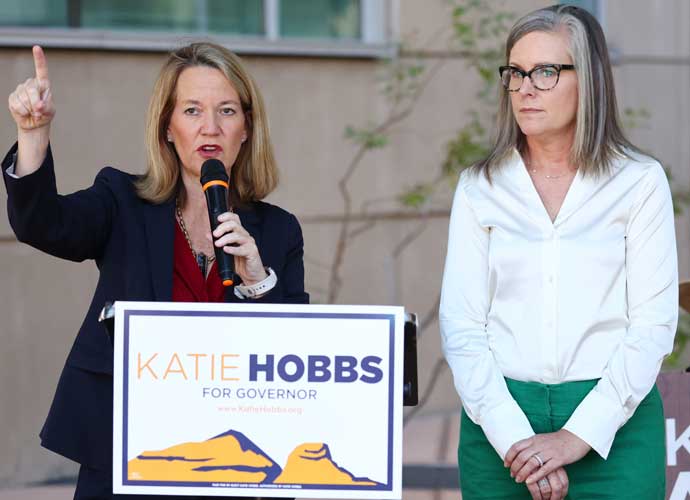Friends With Benefits

2/5
It is a dangerous but increasingly trendy business for filmmakers to position their romantic comedy as the “anti-rom-com”: a film that consciously and self-referentially aims to defy the tropes and expectations of the oft-trodden romantic comedy genre. For a lesson in how to do it right, just look to Marc Webb, whose (500) Days of Summer had its own problems, but certainly followed through on its stated promise to avoid rom-com cliches.
In Friends with Benefits, director/co-writer Will Gluck aims to take the anti-rom-com to the next level of meta-commentary. The romantic leads played by Justin Timberlake and Mila Kunis talk about how “unrealistic” and “silly” rom-coms are and watch clips throughout the film of a fake romantic comedy (starring Jason Segel and Rashina Jones) that serves as a parody of what Friends with Benefits is trying to avoid.
The premise of the movie is smugly “unconventional”: Kunis’s Jamie and Timberlake’s Dylan (such androgynous and contemporary names!) meet when Jamie headhunts Dylan to become the new art director for GQ, and they soon strike up a friendship… with benefits (get it?). They decide to have sex with each other, but without any of the emotional baggage that has marred their past relationships. They enjoy a candid and prolific sexual relationship and handle it maturely when Jamie decides she’d like to try dating other people again. Of course, as their friendship grows closer, things get complicated.
The problem is that if you’re going to declare yourself so thoroughly an “anti-rom-com,” then you have to follow through, especially when another film with the exact same plot and bigger stars came out only six months earlier. Instead, it’s as trite as any Katherine Heigl film. The final reconciliation centers around an utterly absurd flash mob (the second of the film), which might have felt ‘of the moment’ two years ago when flash mobs became a “thing,” but certainly could never feel realistic.
Throughout the film, Friends with Benefits smugly asserts how smart, unconventional, and modern it thinks it is, but mostly falls short. The characters talk about flash mobs as if they’ve uncovered a titillating new trend… when even Modern Family did a flash mob story months ago. They make fun of how rom-coms set in New York often convey New York geography unrealistically (Empire State Building next to Statue of Liberty and so on), and then use a recognizably fake location for the GQ offices.
The picture tries to act like Dylan is some brilliant artist of the digital age… and his idea of a dynamic video is the participants of a flash mob being rearranged into a GQ logo. He and Jamie ridicule the tropes of Katherine Heigl movies (while looking at a poster for The Ugly Truth)…while the film point for point copies the plot of an Ashton Kutcher movie that only came out six months ago. Friend with Benefits can talk the talk with the best of ‘em, but never follows through.
It’s a problem that’s plaguing the anti-rom-com subgenre. You can’t spend a whole movie criticizing a philosophy and then espouse it at the end and hope nobody notices. In He’s Just Not That Into You, the film convincingly argues that the ‘rom-com mindset’ harms women by leading them to believe time and time again that they are the exception, when really the guy is just an asshole. Then Justin Long tells Ginnifer Goodwin “You’re my exception,” and we’re supposed to swoon.
What’s particularly frustrating in the case of Friends with Benefits is that it really could be an entertaining movie (and often is) if it wasn’t trying so hard to prove a point. The problem with modern rom-coms isn’t the cliches, it’s lazy writing and predictable performances, and Friends with Benefits has neither.
Mila Kunis is particularly enchanting as Jamie – between this and Black Swan, Kunis is one hit movie away from the A-list. Timberlake sometimes tries too hard and never stops being “Justin Timberlake,” but he fully commits to the role, which is refreshing. The pair’s chemistry is at times awkward, but they’re certainly fun to look at together. Jenna Elfman, Patricia Clarkson and Bryan Greenburg are all excellent in supporting roles. Richard Jenkins does the most he can with a somewhat trite storyline as Dylan’s father suffering from Alzheimer’s, and the storyline does emotionally resonate.
In the end, Friends with Benefits feels like a college freshman trying way too hard to impress a cool senior. You can feel the filmmakers straining: We have a frank portrayal of sex! We let an old woman talk about how sexually promiscuous she is! We have a gay guy who’s masculine, yet confident about his sexuality! We know about flash mobs! We listen to Foster the People! So trendy! So contemporary!
It’s enough to make you want to whisper, “You don’t have to try so hard” and walk out of the theater… but maybe after just oneeeee more scene.
2 Comments
Leave a comment
RELATED ARTICLES
Get the most-revealing celebrity conversations with the uInterview podcast!







Okay, first of all, Friends With Benefits and No Strings Attached have absolutely nothing to do with each other except that they're both about having sex without feelings. Second of all, you clearly didn't do your research before writing this review because Zach Braff isn't even He's Just Not That Into You, it's Justin Long who says that line. Third of all, who cares about the over usage of flash mobs and that they're already outdated, this script was probably written two years ago when they were cool.
I agree that this film actually had potential, even though the story line seemed really really similar to "no strings attached." Mila Kunis and Justin Timberlake had great chemistry and they were believable, unlike Natalie Portman and Ashton Kutcher who never should have been cast together. But in the end, the film desperately tried to prove their point which had the opposite effect and ruined the movie.